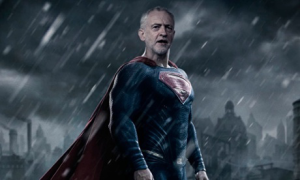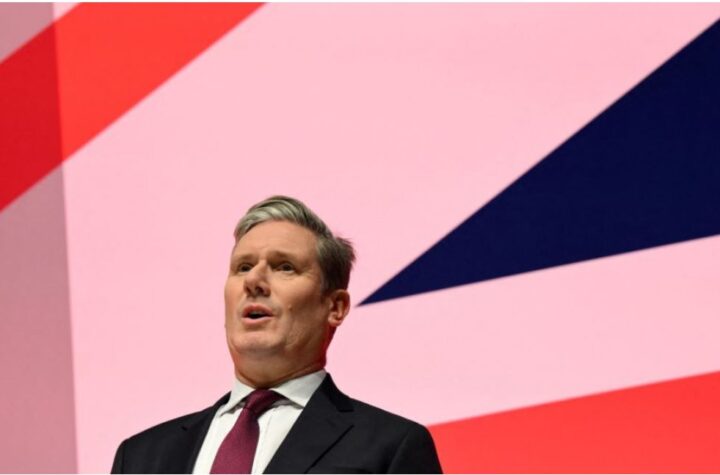
“Social media is an echo chamber in which people are only ever exposed to the ideas they agree with, preventing them from ever having to think critically.”
Just over a month into Jeremy Corbyn’s leadership, one could throw that phrase into the well of public debate and hear it echoed, perhaps even conscious of the irony, by every commentator who decries the ‘social media generation’. And that’s pretty much all of them. It is a far cry from 2011, where the same Guardian leader-writers now condemning social-media-fuelled mass politics seemed to believe that Twitter had literally wished the Arab Spring into existence. We no longer had to bother with tiresome things like organising, because if enough people unliked Hosni Mubarak on Facebook, the regime would fall. Then along came Kony 2012 to parody that attitude at the expense of one too many macchiato-armed edgy white liberals.
These days, it’s different. Cybernat. Corbynista. Apparently these people don’t have jobs or lives and are probably not even flesh or blood. They’re holographic amalgams of ill-thought-through ideas that rest in cyberspace until a right-wing politician says something right-wing, at which point sound and fury boils over into a hate mob that would douse you in boiling oil if only they could escape from the troll cavern they inhabit, sharpening their misshapen, nail-studded clubs of hashtagged resentment.
These beings, we are told, do not interact with normal humans and thus have never been exposed to the sober case for moderate and common sense ideas like starving children as an act of revenge or spending tens of billions on the power to carpet-nuke a continent back to primordial soup as part of an international dick-waving exercise.
Unlike real people who engage in real conversations in the real world, most of these hate-mongers don’t even cite their sources.
The odd thing about all this is that the idea of a ‘media echo chamber’ was developed by studying the American Right’s hegemonic control over the actual media – broadcast, print, online. It could be expanded to look at the British press with its vanishingly small Overton Window (millions support Labour but only two or three of the national papers do, hundreds of thousands of people supported Corbyn but no Labour-supporting nationals did.) But the idea of another medium with its own biases that threatens the gates of opinion that they guard is terrifying. They can see only the beast of unacceptable opinion growling as it nears the guarded city gates.
It remains ironic that the social media giants essentially serve as giant amplifiers for none other than the big papers. There is a worry that the papers are becoming a syndication service for the social media giants, but I’m not sure that really bears on this discussion.
Social media can work to echo and amplify. So do friendship groups which are often self-selecting, and families, and workplaces, and community groups, and chess clubs and garden centres.
Wait, they’re not? People are exposed to disagreement in their families and communities? Well, maybe these people also have social media accounts and have experienced differing opinions before? Perhaps they’ve even encountered a differing opinion or two on social media as well? I’m reliably informed they do drift around there, somewhere. Perhaps their Tory mate is also on their Facebook…?
Of course some (most) people don’t go out of their way to read opposing literature, much as it would be great. Of course some (a lot) of people on all sides of a debate should be less unpleasant both on- and offline as a matter of personal etiquette and of political strategy – not that this has much to do with the politics and practice of Jeremy Corbyn.
The Corbyn campaign did indeed deploy social media effectively to win and must continue to do so. Social media battles are not the only aspect, but the key aspect of any electoral strategy, or parties would not pour so much money towards digital communication. There is, of course, no substitute ultimately for offline organizing. This is is why organisations like Momentum have been created. It is why the movement needs to be testing and developing the ideas, narratives and arguments upon which their movement rests. Only by doing this can they win debates – not just ‘on the doorstep’, but also in day-to-day life. For if people’s first encounter with the case for socialism is a hungover bleary-eyed hack on their porch with a pile of Labour leaflets two days prior to the polls, there is no hope for the movement.
I’m not, therefore, entirely dismissing the notion of an echo-chamber effect and the importance of considering it. What I am dismissing is the attempt by the chattering classes of political commentary to attack its opponents with its newest, shiniest narrative frame. They do this all the time. Let’s consider a few examples that our disinterested, accuracy-obsessed media have regularly espoused:
1. ‘Labour trashed the economy’. (Nothing to do with that global recession).
2. ‘The economy is like a household budget’. Hands up all of those whose families have created a Collateralised Debt Obligation?).
3. ‘British voters are moderate’. (Even if our preferences reflect a dizzying and often simultaneously held set of hard-left and hard-right beliefs).
Yes, we have to do more than tweet angrily, but we also have to resist this attempt at crude pigeonholing on part of the biggest and most-resourced echo chamber of all
source




Thanks for the post that underlines the massive megaphone that delivers propaganda to the citizens via psychologically vetted messages through our media. I have hearing loss so that probably e plains my failure to pick up the echoes that you are concerned with,all I get is repeated lies and distortions of the important facts that determine our future.
I do note that the media with almost no exception persuaded the Labour Party that the three examples you cite are true. Whether Jeremy will succeed in showing them the light is clearly in the balance.